(People.cn/CHANG Hong, JIA Wenting, TAO Wen) On September 7th, the 2nd Taihe Civilizations Forum initiated by the Taihe Institute was held in Beijing. Certain former foreign political figures and nearly 200 prestigious experts and scholars at home and abroad attended the forum.
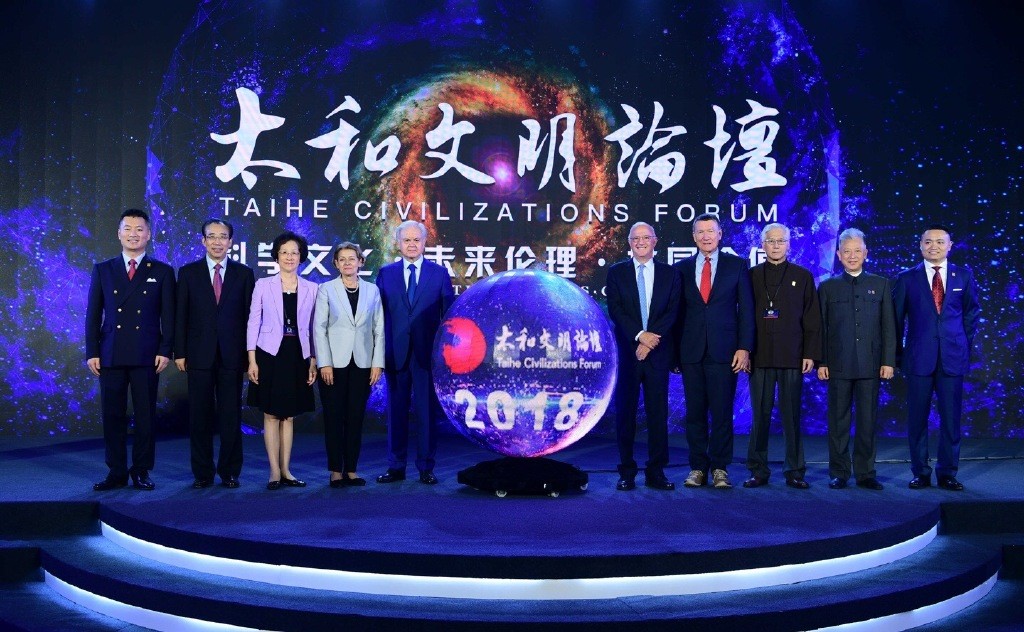
Members of the Presidium including PENG Binge, Chairman of Taihe Institute, GU Boping, Chief Cultural Scholar of Taihe Institute, Ms. Irina Bokova, Senior Fellow of Taihe Institute and Former Director-General of UNESCO, Rashid Alimov, Secretary-General of Shanghai Cooperation Organization (SCO), WU Hailong, President of Chinese People's Institute of Foreign Affairs (CPIFA), YUAN Ming, Dean of Yenching Academy at Peking University, CUI Liru, Senior Researcher of Taihe Institute and Former President of China Institutes of Contemporary International Relations, Stephen Orlins, President of the National Committee on U.S.-China Relations and John Holden, President & CEO of the U.S.-China Strong Foundation, jointly activated the launching ball, announcing the official opening of the forum.
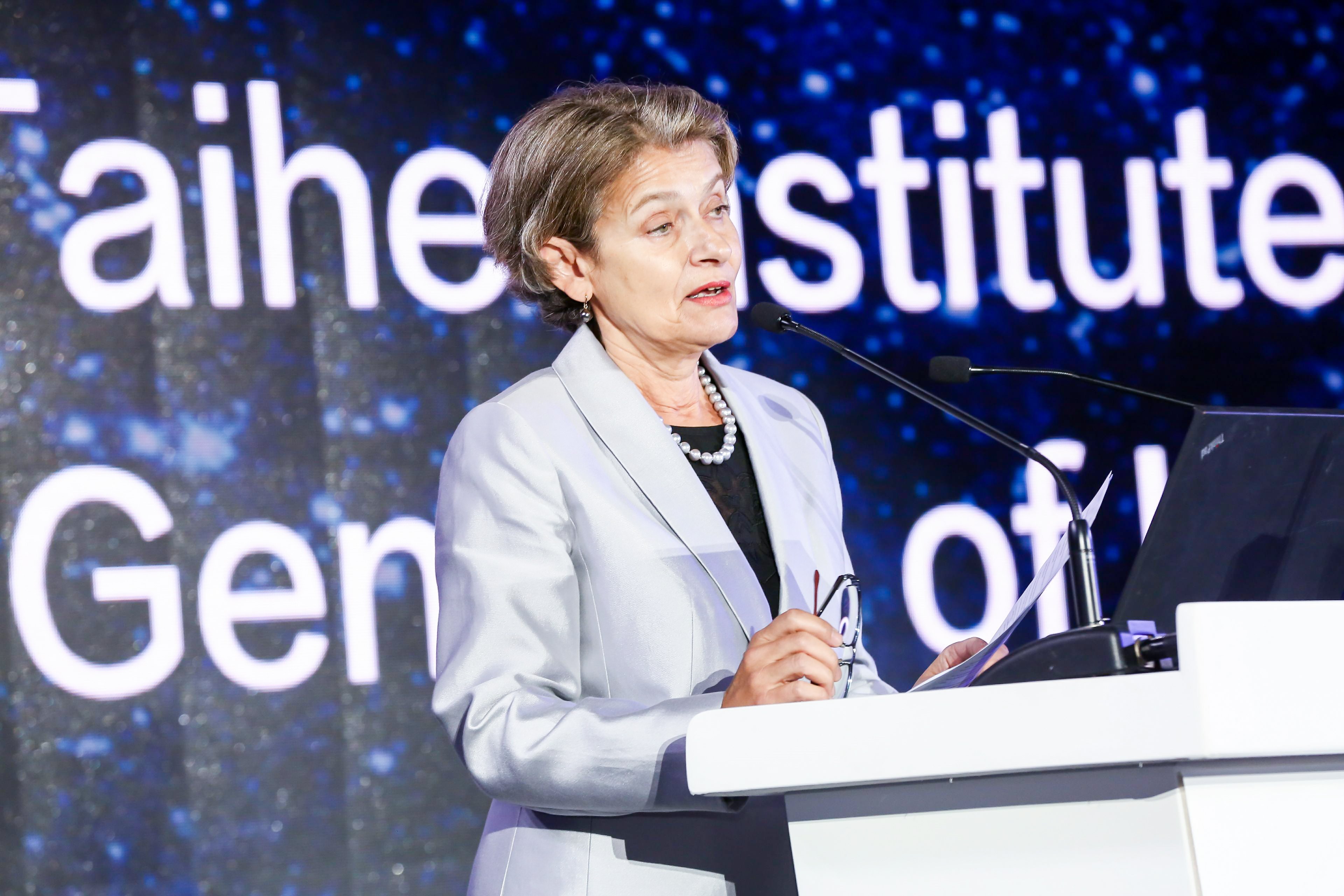
Taking “Science Culture · Future Ethics · Common Value” as the theme, this forum aims to uncover the common values of human beings, explore the harmonious coexistence of science & technology and social ethics in the future under the context of rapid development of modern science and technology, and promote the sublimation of a community with shared future for mankind. Ms. Irina Bokova, Chairman of the 2nd Taihe Civilizations Forum, Senior Fellow of Taihe Institute and Former Director-General of UNESCO, said that in the process of globalization, the continuation of civilization and coexistence of human beings have become the biggest challenges of the world. The civilization with a spirit of inclusiveness will get stronger and stronger. China’s “Belt and Road” Initiative puts forward the proposal of the “linkage of people’s hearts and minds” and other four linkages, which will become a road of harmony, promoting the common prosperity and development of human society. Thus, we must cultivate citizens with a spirit of inclusiveness, which can be called the "silk road citizens."
At the opening ceremony, many prestigious participants expressed their own views on three popular themes: People-to-People Exchange, Sustainable Development, and Advanced Technology. The exchange and collision of ideas have made the light of Taihe more dazzling.
People-to-People Exchange—The key to sound relations between states lies in the affinity between their people, which largely stems from mutual understanding.
People-to-people exchange is an important way to promote exchanges and mutual learning and resolve conflicts among different countries, nations, races and religions in human society.

Secretary-General of SCO , Rashid Alimov
At the opening ceremony, Rashid Alimov, Secretary-General of SCO said in his speech that the SCO is a living history recording the Maritime Silk Road and the Ancient Tea Horse Road. Early in ancient times, regional civilization flourished through dialogue and mutual understanding of trade and culture. Nowadays, at a time when fundamental changes are taking place in the international relations system, the Taihe Civilizations Forum is a timely manifestation of the lofty political and moral significance of “Taihe”, which means “supreme harmony”. Dialogue among civilizations on an equal basis is the best response to mankind’s common threat of terrorism and extremist forces, which meanwhile will also strengthen the friendship of people around the world.
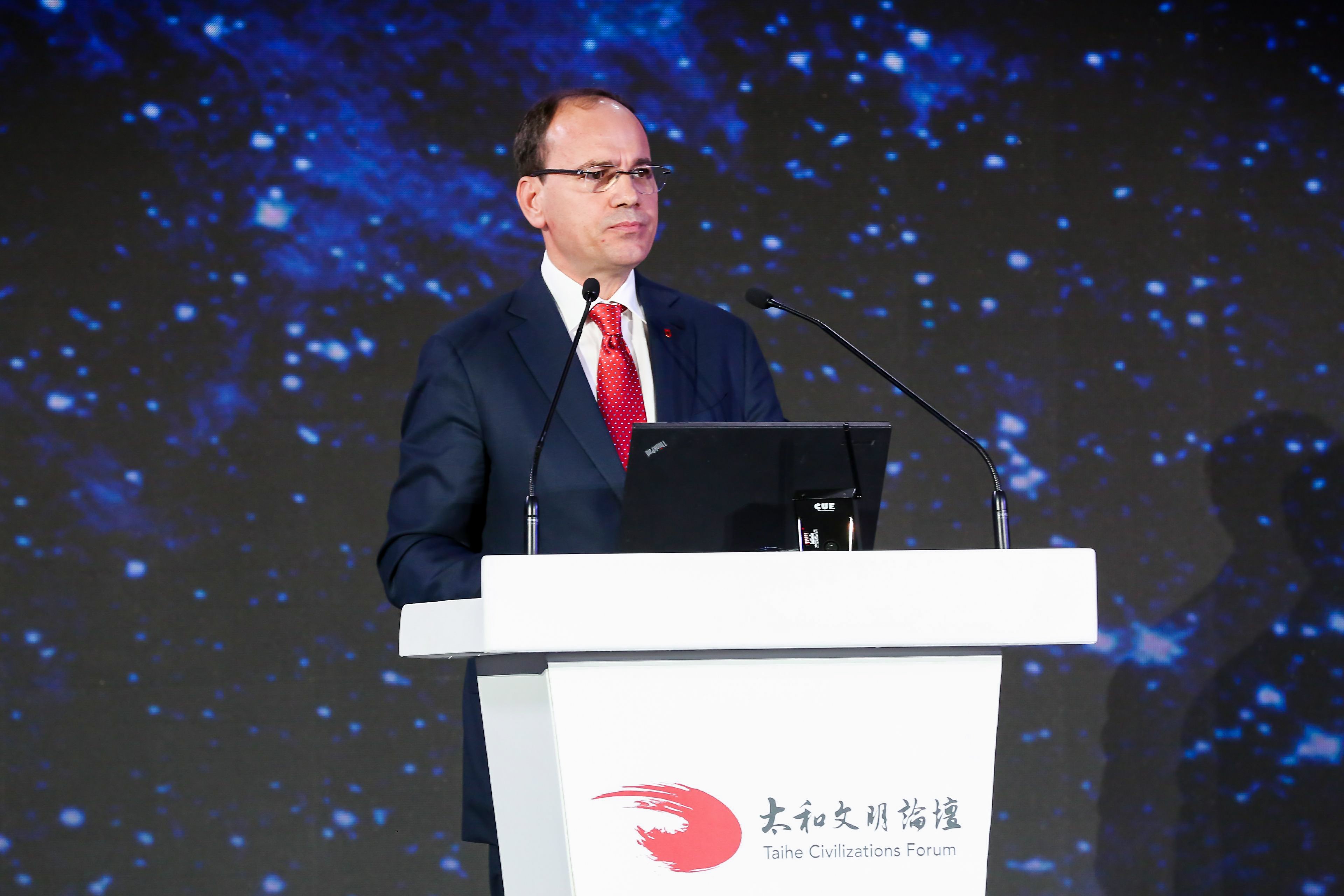
Former President of the Republic of Albania , Bujar Nishani
Bujar Nishani, Former President of the Republic of Albania, believed that in the diverse world that is full of changes, mutual respect is more important than ever. Indifference, hatred and confrontation lead to global risks, large-scale conflicts in particular. Only by recognizing and respecting human multiculturalism, religious coexistence, and harmony among civilizations, can we better promote human communication and pave the way for economic prosperity.
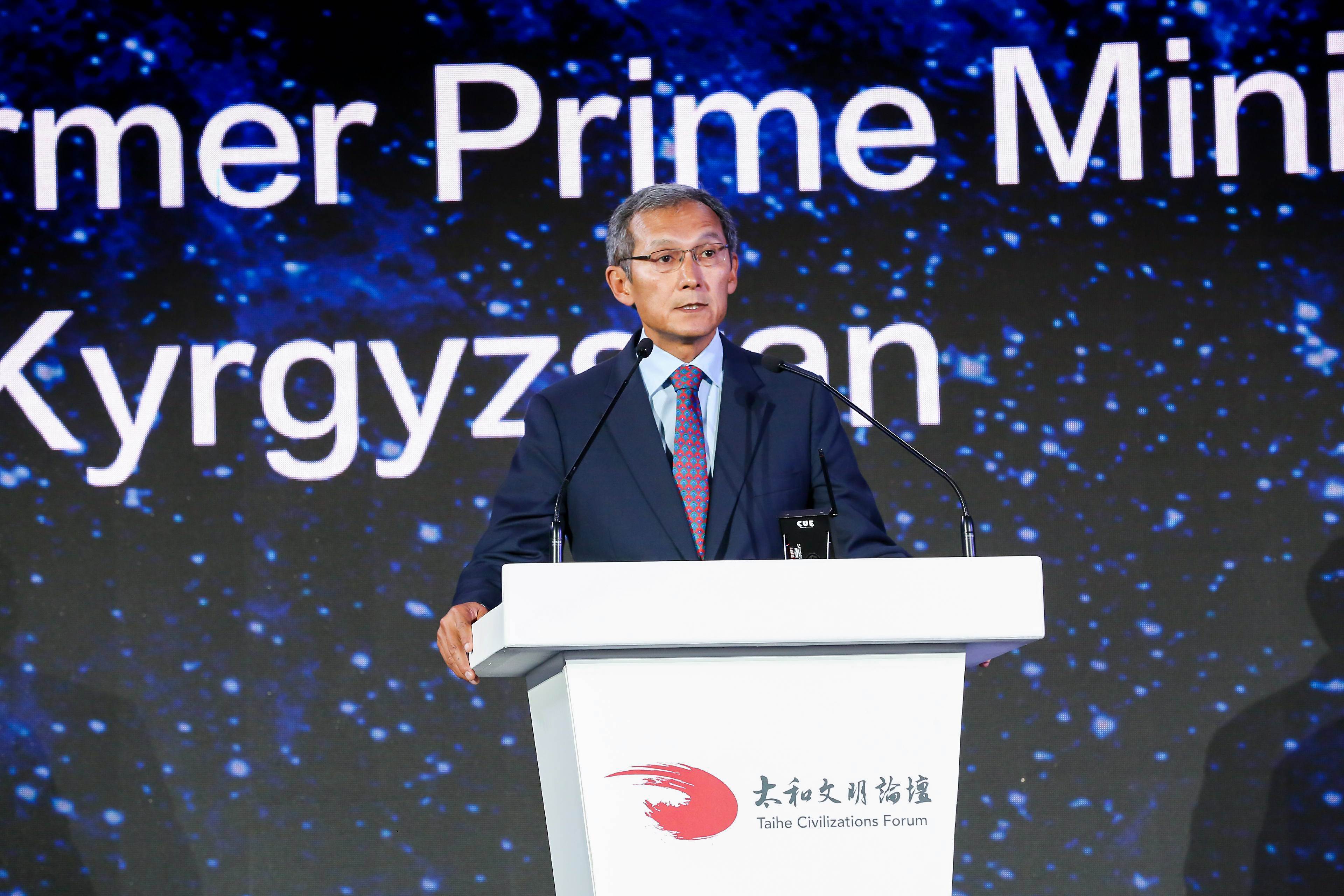
Former Prime Minister of the Kyrgyz Republic , Dzhoomart Otorbaev
Dzhoomart Otorbaev, Former Prime Minister of the Kyrgyz Republic, believed that linkage of people's hearts is the core of the Belt and Road Initiative, and trust is the key to cultural exchange and coexistence. Therefore, the great initiatives could be developed and strengthened by developing the "Cultural Silk Road" and strengthening the emotional connection to build trust and friendship among different countries and regions.
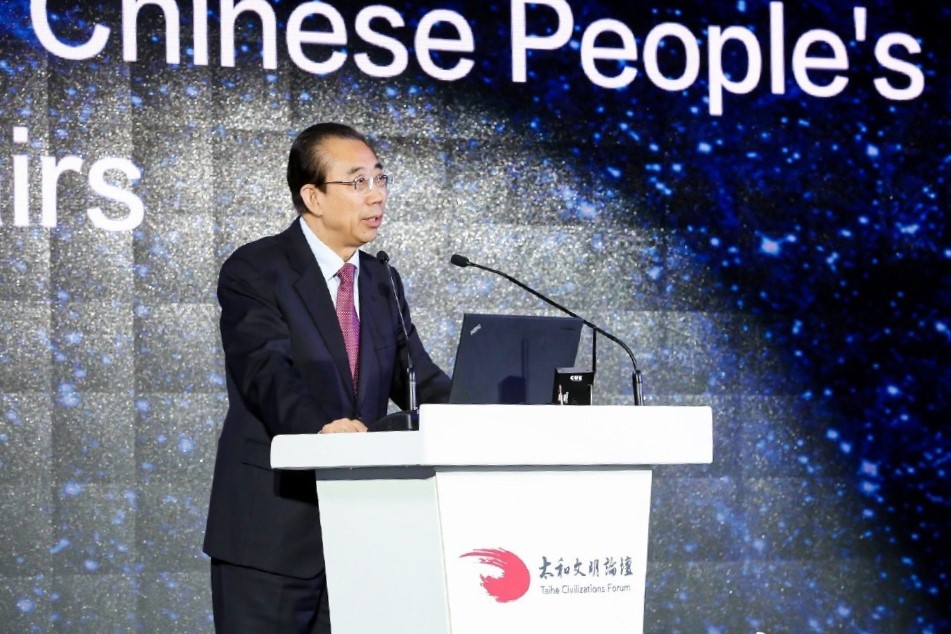
President of Chinese People's Institute of Foreign Affairs , WU Hailong
WU Hailong, President of Chinese People's Institute of Foreign Affairs, believed that exchange between peoples plays an increasingly important role in the relationship between countries. What’s valuable here is "respecting each other and treating each other as equals.", and the content and manner of storytelling are both important; Don’t forget to listen to other people's stories while telling your own stories; Don’t hesitate to speak frankly while maintaining good qualities; Don’t neglecting the chance of turning enemies into friends while making new friends; Don’t ignore the way of communication while paying attention to the content.
Sustainable Development - Global consensus for a better future
Slow-down world economic growth, return of trade protectionism and populism and intensified inequality have greatly disrupted the formation of global consensus as well as the promotion of sustainable development. Participants agreed that issues such as structural obstacles in achieving sustainable development are urgently to be solved.
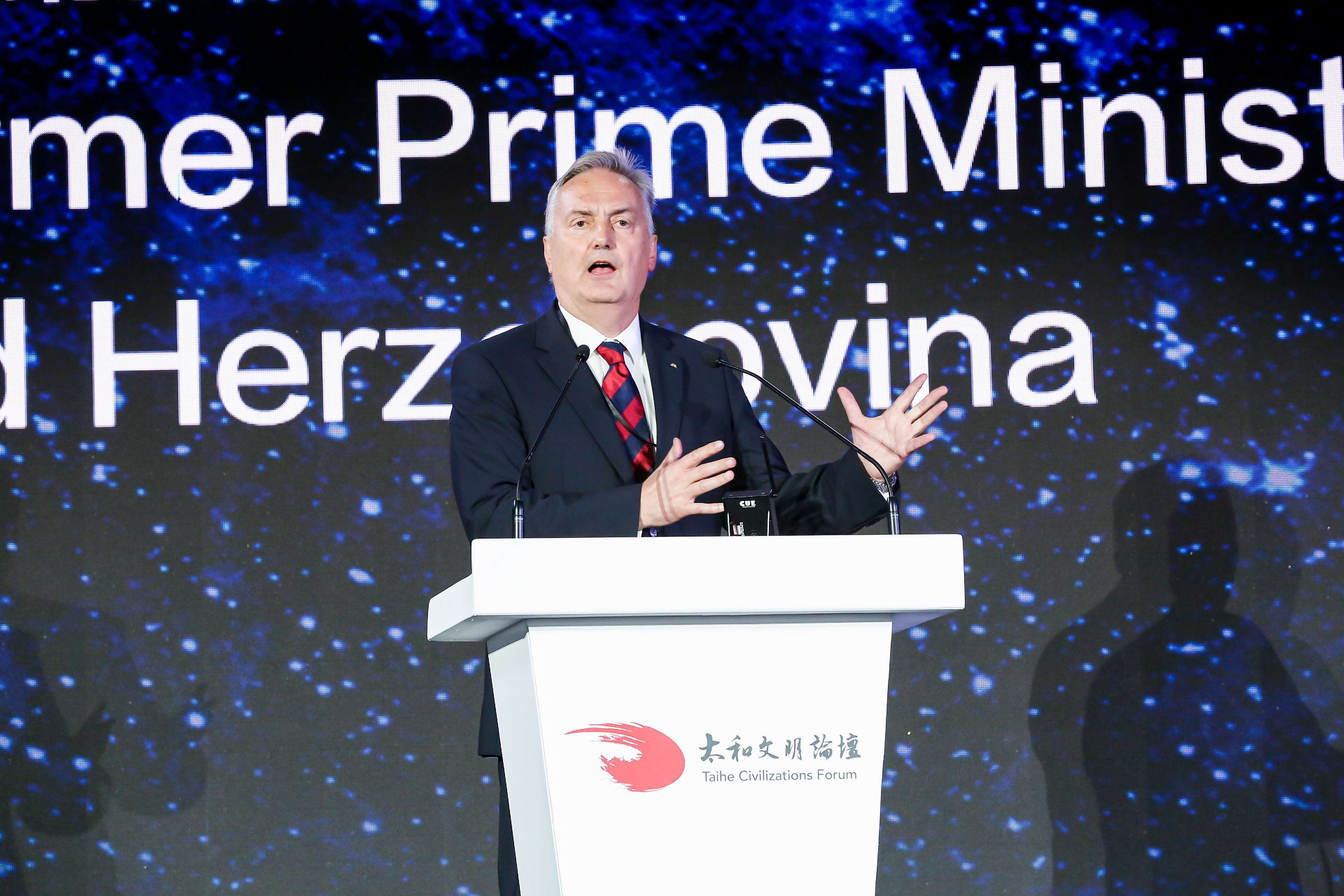
Former Prime Minister of Bosnia and Herzegovina , Zlatko Lagumdzija
Zlatko Lagumdzija, Former Prime Minister of Bosnia and Herzegovina, raised two in-depth questions about sustainable development: Why do human beings have good opportunities to save themselves while being confronted with the ultimate danger? Why is there no other way for human beings to create a better future except for chasing the full harmony of people, nature and technology? He believed that the ultimate theme of the Taihe Civilizations Forum is to find answers to these two questions and called on people from various fields to work together and promote human progress.
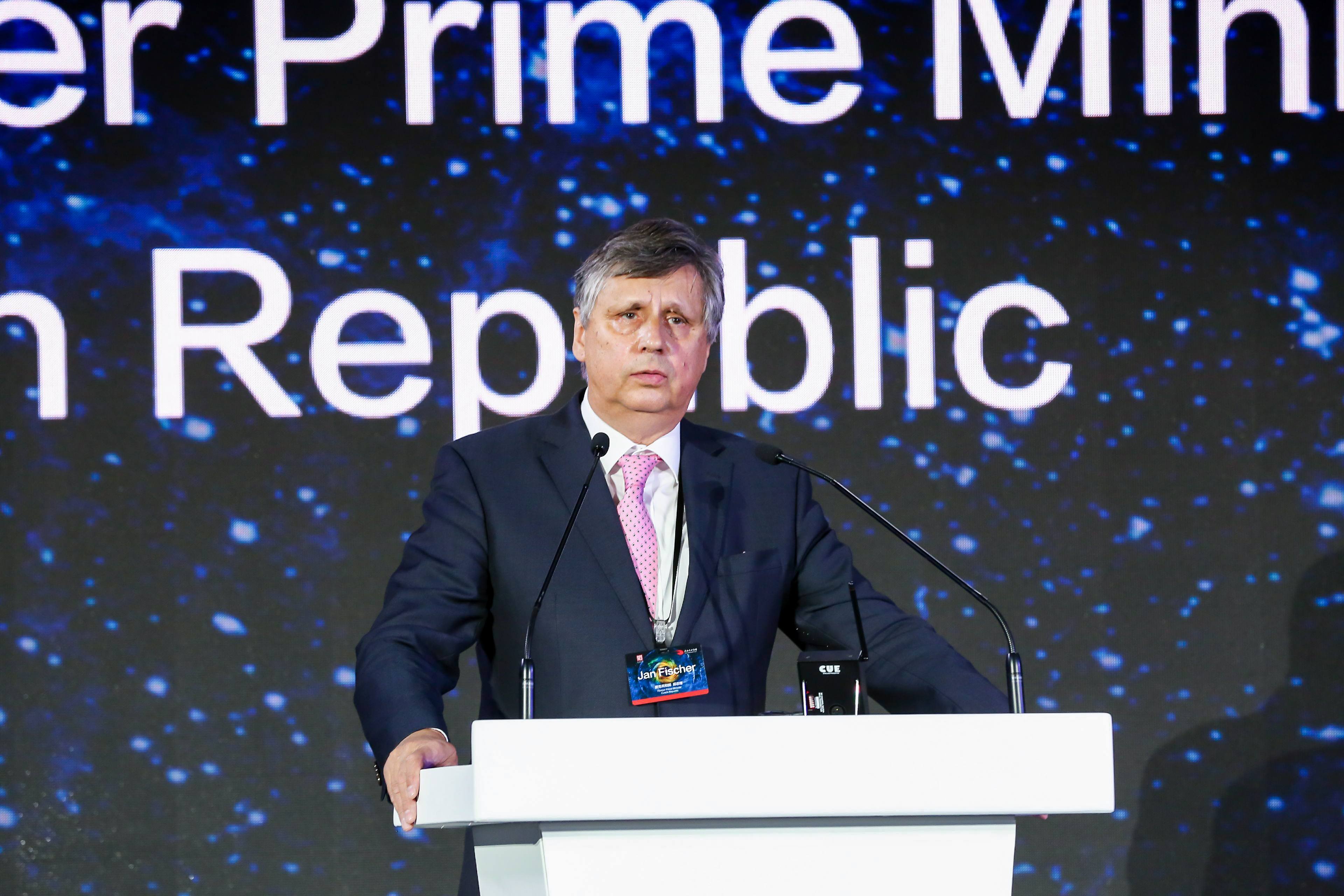
Former Prime Minister of Czech Republic , Jan Fischer
Jan Fischer, Former Prime Minister of Czech Republic believed that advanced technology exerts influence on human society, but how could we make sure that it serves for human civilization, promote unity rather than division, promote sustainable development rather than damage the balance? It is a serious ethical issue. Human society needs open and in-depth discussions on not only common values, but also what kinds of values and in what way they can be shared with each other. How to face and solve the above problems determines whether we can handle the relationship between peoples, people and nature, people and technology, and realize the harmonious coexistence of human civilizations. Governments, organizations, politicians and people from all walks of life should make every effort to promote these values and have confidence in the future.
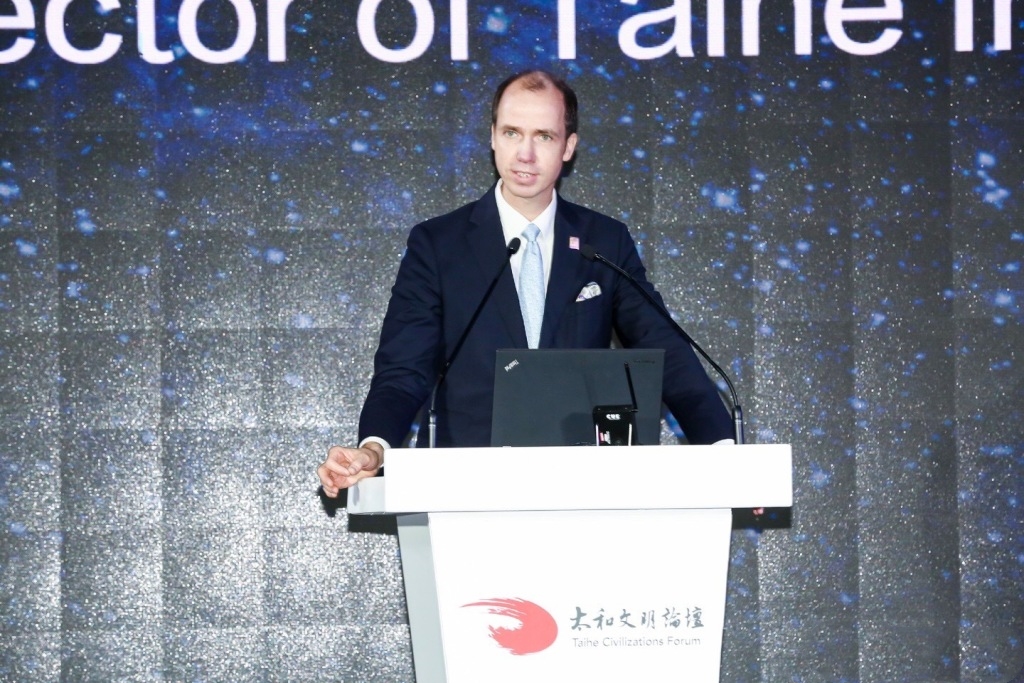
Director of the Taihe Institute Europe Center , Thorsten Jelinek
Thorsten Jelinek, Director of the Taihe Institute Europe Center, holds that only radical change in the development mode and modern civilization structure can fundamentally solve the major problems such as climate change and environmental pollution faced by human beings. This requires not only the concept and technology which allow rapid transition to a carbon-free society, but also the establishment of common values which are universally accepted through political action. It is the very reason why the “common values” has been the highlight of the Taihe Civilizations Forum.
Advance Technology—High-tech benefits human beings and calls for a global ethical consensus
Technology is the driving force behind the transformation of everything. The rapid development of life science and artificial intelligence not only changes the way human beings work and live, but also poses a huge impact and challenge to human social ethics in the future. Therefore, ensuring that the technological advancement could truly benefit the mankind has become a major issue of the time.
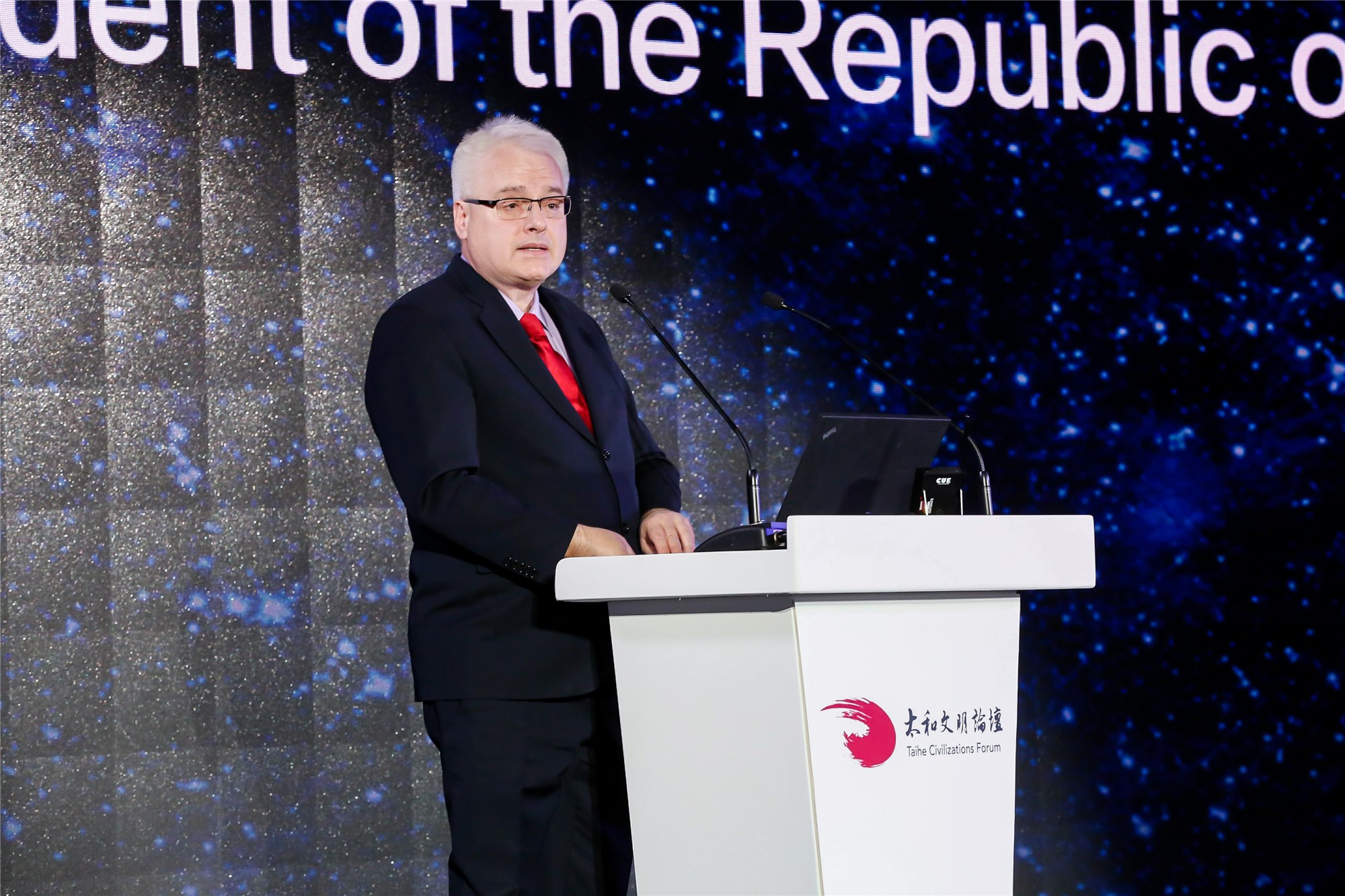
Former President of the Republic of Croatia , Ivo Josipovic
Ivo Josipovic, Former President of the Republic of Croatia, delivered a speech on the topic of “High Technology and Its Challenge to Modern Society”. He believed that high-tech development has made strategic and fundamental changes in the international community, such as the world's increasing trend to multi-polarization. However, high technology also brings many drawbacks while benefiting the mankind, to which human beings should be alert.
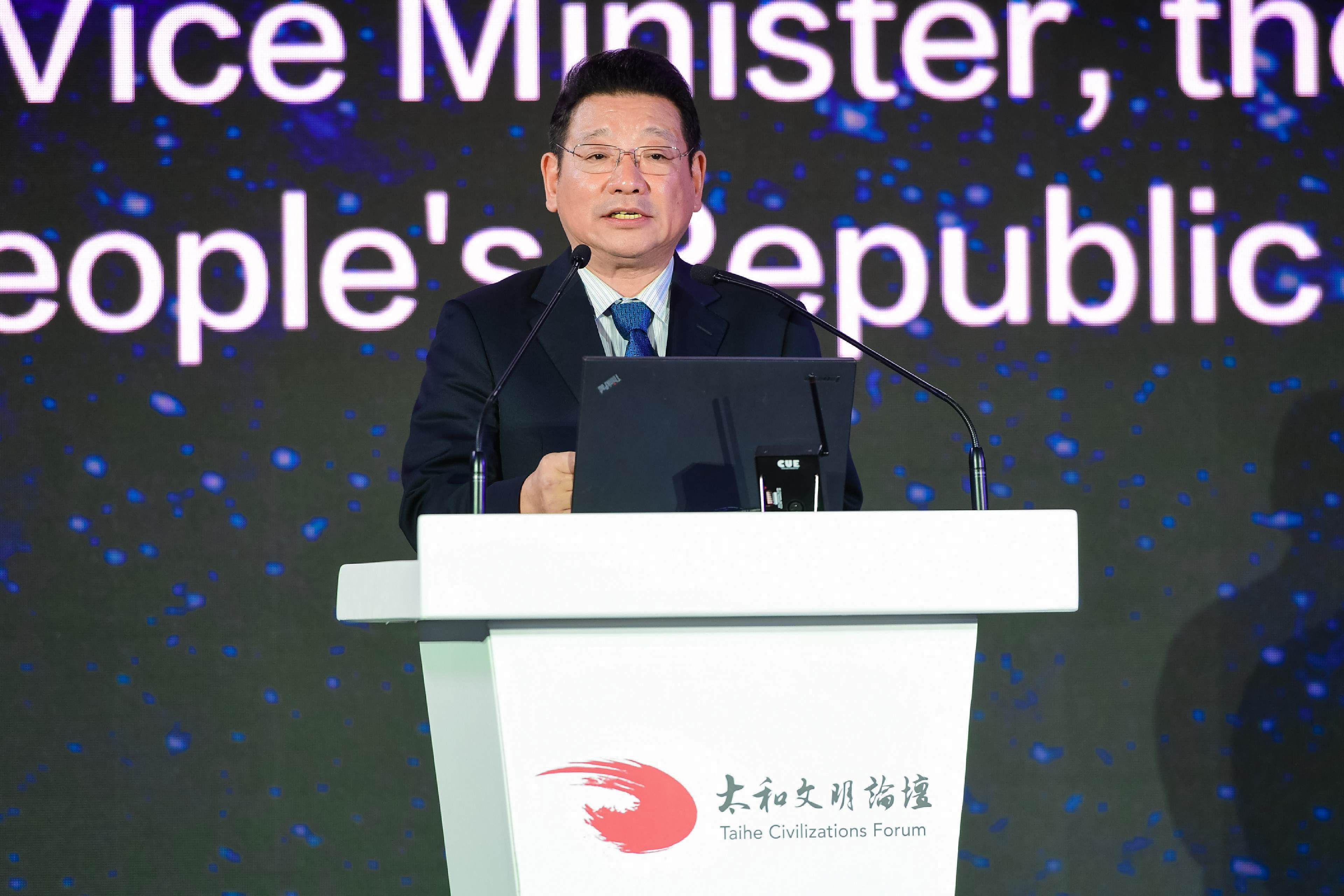
President of China Association for Friendship and Former Vice Minister of the Ministry of Public Security of the People’s Republic of China, CHEN Zhimin
CHEN Zhimin, President of China Association for Friendship and Former Vice Minister of the Ministry of Public Security of the People’s Republic of China, believed that, data in the era of Big Data is like the land to agricultural society and the capital to industrial society. Among them, the data ownership issue will have a major impact on the safety, development and future destiny of human society. Therefore, countries should avoid the imbalances and conflicts among the international community caused by the contradiction of data resources. Under the UN framework, the international community should jointly explore the formulation of data ownership theory and international rules which are scientific, rational, balanced and inclusive, and construct a fair and reasonable international cyberspace order.
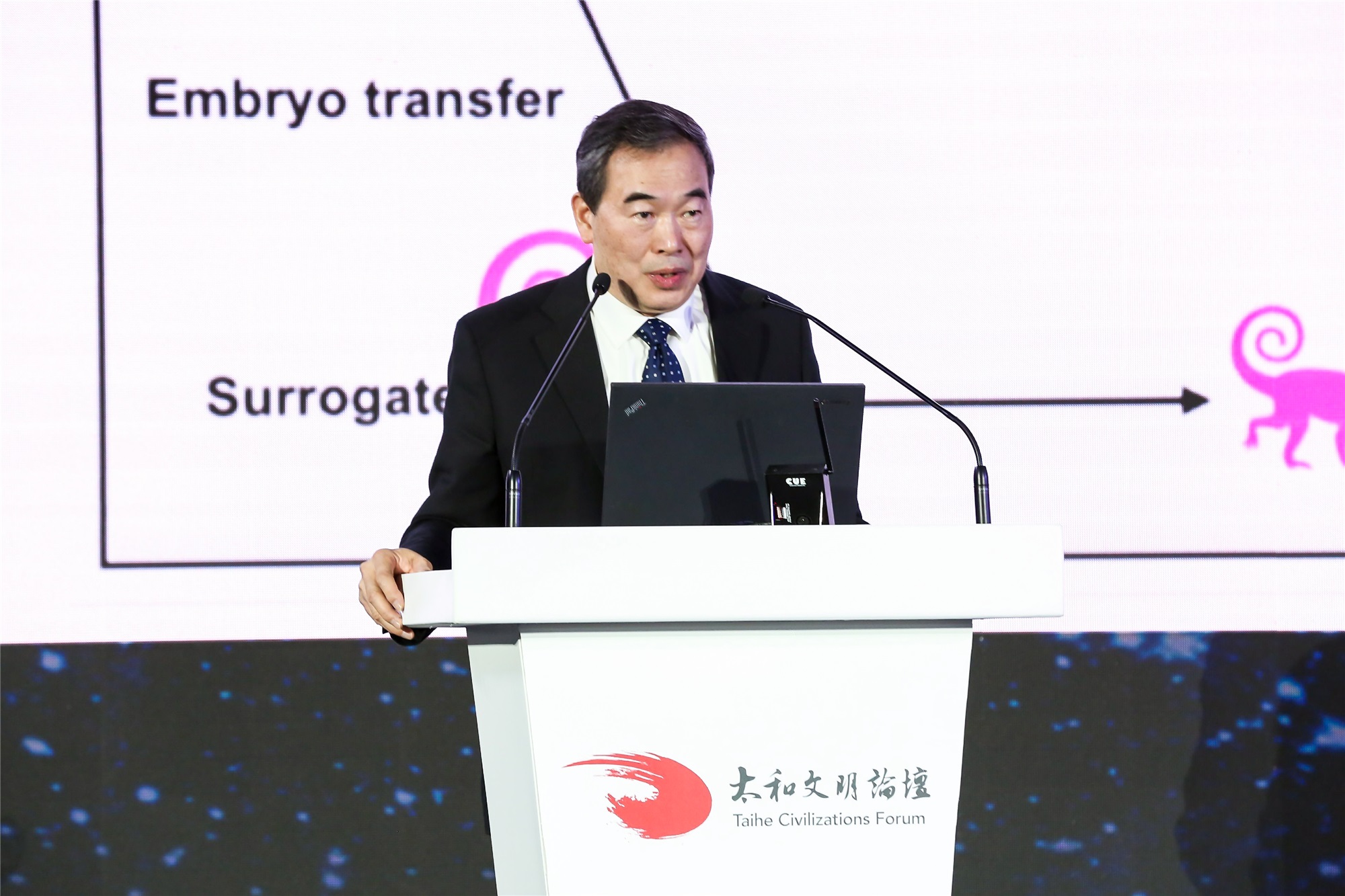
Director of the Institute of Neuroscience at Chinese Academy of Sciences,PU Muming
PU Muming, Director of the Institute of Neuroscience at Chinese Academy of Sciences, analyzed the ethical issues brought about by the frontier technology. Combining his team's experience in successfully cloning two monkeys, he introduced the relevant cloning techniques and their superiority, with focus put on their roles in helping study the structure of the human brain and treating various incurable diseases. However, many frontier technologies, such as the use of gene editing technology in incurable diseases, stem cells, artificial intelligence, etc., are still faced with opposition by some scientists and ethicists. To this end, he called for a global ethical consensus to properly handle the relationship of pursuits between frontier science & technology and social needs, as well as the relationship among human common values, culture, and religious factors.
Following the four principles of impartiality, globality, foresight and impact, the Taihe Civilizations Forum (TCF) was initiated in 2017 to engage global leaders of all fields in supporting “the harmonious development of common values and the advancement of human civilization.” The TCF focuses on global and regional challenges, explores root causes, identifies and promotes possible solutions, as well as facilitates communication and impacts creation across borders. The theme of the first Taihe Civilizations Forum was “advancing human civilizations and developing common values”. As a benchmark for world-famous forums, Taihe Civilizations Forum seeks to become a platform of extensive international influence for academic exchanges and non-governmental diplomacy.
-

- China-US trade war not yet at climax 18 September , 2018
-

- Comparing SCO to NATO inappropriate 16 September , 2018
-

- Sustainability and climate action: overcoming psychological ... 11 October , 2018
-

- 2018 Taihe Civilizations Forum Content Highlights 15 April , 2019
-
2018 Content Highlights
-

- Rashid Alimov Secretary-General of the Shanghai Cooperation Organization(2016-2018).
-

- Mohamed Sameh Amr Professor of International Law Department at Cairo University. He is also a ...
-

- Irina Bokova Distinguished Fellow of Taihe Institute, Director-General of...
